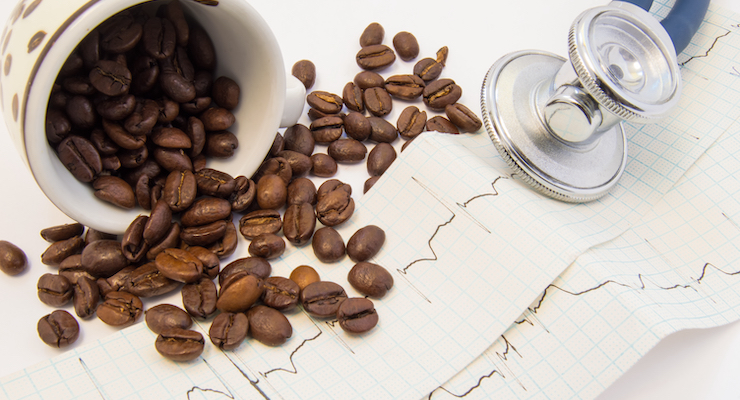Market Updates, Research
Study Identifies Possible Cardioprotective Compound in Coffee
A coffee extract rich in chlorogenic acids improved endothelial function in the short-term, but more research is needed for long-term effects to be known.

By: Mike Montemarano

In recent years, several studies have highlighted an apparent cardioprotective effect that coffee has, however, there is much debate regarding which compounds of the coffee bean are worth investigating in order to determine the mechanism of such protection, which is linked to reduced cardiovascular mortality, heart failure, all-cause mortality, and more.
Emerging evidence indicates that the consumption of coffee beverages enriched in chlorogenic acids (CGAs) may influence blood pressure and endothelial function, suggesting that the beneficial effect of coffee might be related to its CGA content.
In a recent double-blind randomized crossover trial, published in The American Journal of Clinical Nutrition, researchers provided participants with a decaffeinated green coffee extract rich in CGAs, and subsequently assessed the endothelial function of these 21 healthy subjects by measuring flow-mediated dilation (%FMD), a standard criteria.
“Endothelial function plays an important role in the development and progression of CVD,” the authors of the study said. “Evidence suggests that endothelial dysfunction is an early and integral feature associated with several CVD risk factors”…
“Few human intervention studies have assessed the effects of coffee or coffee components on endothelial function and associated biomarkers, with contradictory findings, and the mechanisms by which coffee may exert effects on the endothelium remains unclear.”
In the present study, the researchers provided three different concentrations of CGAs in the subjects, all of whom had suboptimal baseline FMD values. It was observed that the total polyphenol concentrations resulted in an acute improvement in %FMD following supplementation with the decaffeinated green coffee extract, and that there was a positive tendency toward a larger effect at higher concentrations of CGA metabolites.
“The impact we observed on endothelial function is not necessarily restricted to coffee CGAs,” the researchers said. “Similar acute effects on FMD have been observed for purified compounds or extracts from other polyphenol-containing foods such as cocoa, tea, grape, apple, and blueberry.”
Because the study was acute (measuring endothelial function over the course of a 12-hour period, including postprandial endothelial function), the authors of the study said that further research is needed to demonstrate the sustainability of these effects in order to verify whether coffee CGA consumption could significantly and meaningfully improve vascular function and health in different populations.




















